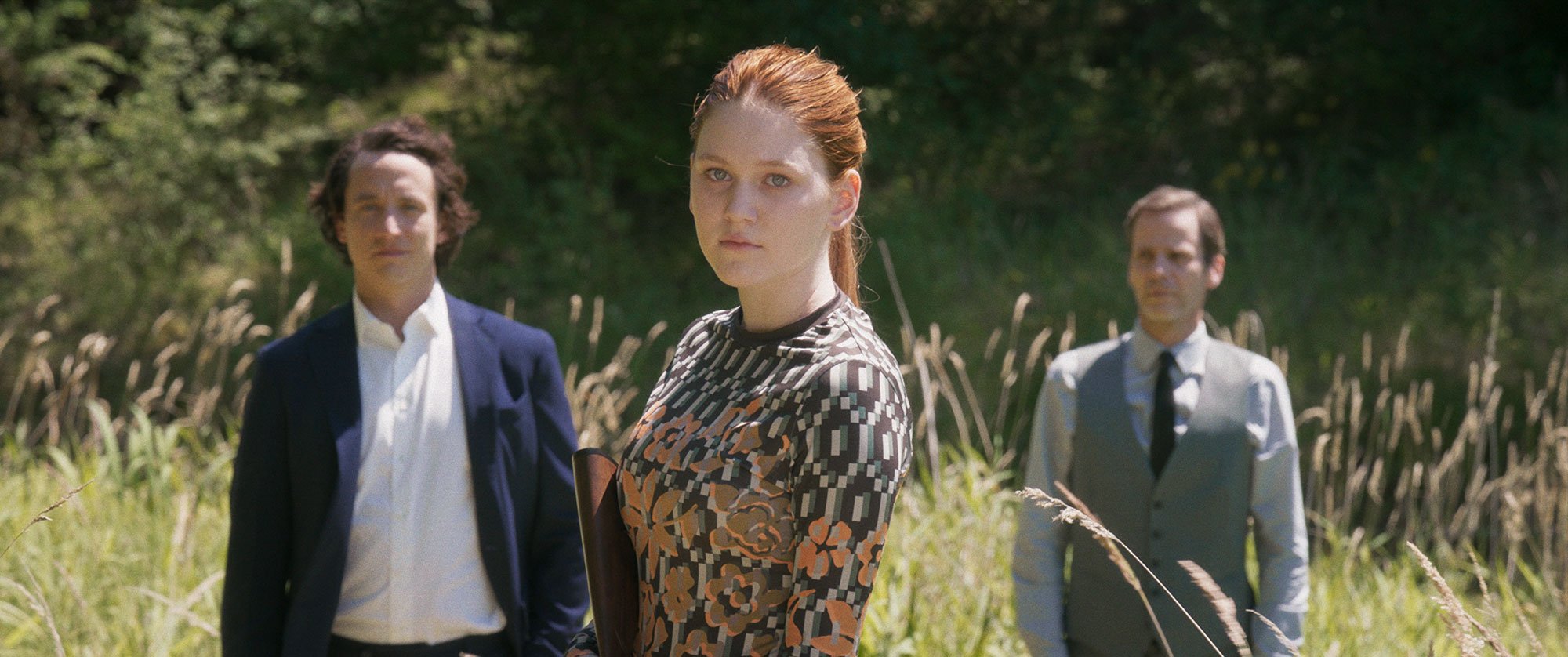JULIA NIEMANN
DIRECTOR/WRITER
Julia Niemann grew up in Bavaria, the daughter of a man once known for selling the best cocaine in the region. The Niemann name stood for quality early on.
She moved to Vienna to study philosophy, but left the library often enough to start reporting from the real world. Her journalism, published in Die Zeit, Süddeutsche Zeitung, and FAZ, was rooted in obsession and fieldwork: deep dives into subcultures, systems and their contradictions. Her method hasn’t changed much since switching to film.
Her debut as co-director, "Davos" (2020), dissected the ritual theatre of the World Economic Forum and won the Romy Award for Best Cinema Documentary. In 2024, her fiction debut "Veni Vidi Vici", co-directed with Daniel Hoesl, premiered at Sundance in World Dramatic Competition. That same year, she co-wrote "The Souffleur" with Argentinian director Gastón Solnicki starring Willem Dafoe.
She is currently developing "I’m Not Here to Make Friends", a sleek and sunny psycho-thriller about the age of narcissism we’re all living in. Supported by the Austrian Film Institute, the film was selected for Locarno Pro’s Alliance for Development.
Niemann also works as a dramaturg, collaborator on television series, and general contrarian.
Julia Niemann is represented by Katrin Näher.

VENI VIDI VICI
COMING UP
THE SOUFFLEUR
Julia Niemann co-wrote the screenplay for the darkly humorous comedy alongside director Gastón Solnicki. Willem Dafoe stars in the leading role. He plays a long-standing Viennese hotelier whose livelihood is threatened by an Argentinian building contractor and who embarks on a personal vendetta.
After being presented at the Venice International Film Festival and the Zurich Film Festival this year, the film will now also be shown at the Vienna International Film Festival at the end of October.
VARIA
APOLOGIZING MEN, three-channel video installation, 10'21’’, color/b&w, sound
collaboration w/ Leonie Seibold
Instagram: @apologizingmen
Installation Views by @Eszter Kondor
Shows:
Parallel Art Fair Vienna ‘21
Gallery Weekend Berlin, Alexander Levy Gallery ‘22
Wien Museum ‘22
APOLOGIZING MEN is an expansive multi-channel video installation. It consists of three interrelated individual films, each approx. 10 minutes long, which are projected simultaneously in a continuous loop onto three screens. Video excerpts of men apologizing (fragments from films, music videos, politicians‘ speeches, or historical archive material) run on three channels, which are coordinated in a way that patterns, echoes, and correspondences emerge. All three videos are subject to a similar dramaturgy: Hollywoodesque apology melodramas are intercut with formal politician confessions; serious and upstanding men want to win back a woman, want to win back a whole country. The conditio hominis is told as a story of failure; pleas for forgiveness grow more urgent, more desperate, louder. Pleading, howling, knowing that even forgiveness cannot undo anything. In the end, no one listens anymore, except for the answering machine.




